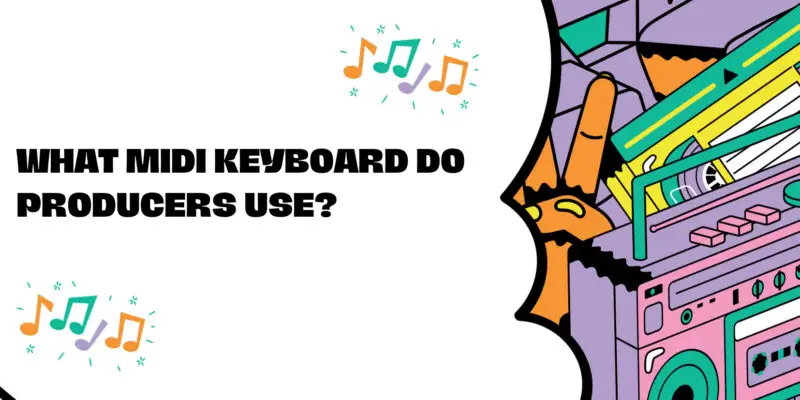Music production has undergone a significant transformation in recent years, largely due to advancements in technology. MIDI keyboards, in particular, have become indispensable tools for producers of all genres. These versatile instruments serve as the bridge between a producer’s creativity and their digital audio workstation (DAW). But what MIDI keyboards do producers use? In this article, we’ll explore the various MIDI keyboards favored by producers and how these tools help shape the music production landscape.
The Role of MIDI Keyboards in Music Production
Before diving into the specific MIDI keyboard models, it’s essential to understand the critical role they play in music production. MIDI keyboards serve as a primary input device for producers, enabling them to:
- Compose Melodies and Harmonies: Producers use MIDI keyboards to play and record melodies, harmonies, and chord progressions directly into their DAW. The keys provide an intuitive and expressive means of translating musical ideas into digital form.
- Control Virtual Instruments: MIDI keyboards are used to trigger and control virtual instruments, such as synthesizers, samplers, and drum machines, within a DAW. This allows producers to craft a wide range of sounds and textures.
- Automation and Parameter Control: Many MIDI keyboards come equipped with knobs, faders, and pads that can be mapped to various parameters in a DAW. Producers use these controls for real-time automation, mixing, and sound manipulation.
- Sequencing and Arrangement: MIDI keyboards often include built-in sequencers or arpeggiators, making it easier for producers to create intricate musical patterns and arrangements.
Common MIDI Keyboards for Producers
- Novation Launchkey Series: Novation’s Launchkey series has gained popularity among producers for its integration with Ableton Live and its intuitive control layout. These keyboards come in various sizes and offer a combination of keys, pads, and knobs, making them versatile tools for electronic music production.
- Akai Professional MPK Series: Akai’s MPK series, including the MPK Mini and MPK249, is renowned for its build quality and extensive control options. These keyboards are prized for their responsive keys, drum pads, and assignable knobs, making them suitable for various music genres.
- Native Instruments Komplete Kontrol Series: Designed for use with Native Instruments’ Komplete software, these keyboards offer seamless integration with a vast library of virtual instruments. They feature high-quality semi-weighted keys, touch-sensitive encoders, and a unique Light Guide system to aid in music composition and sound design.
- Arturia KeyLab Series: Arturia’s KeyLab series provides a range of MIDI keyboards that cater to both beginners and professionals. With their vintage-inspired design and deep DAW integration, they are favored by producers who appreciate classic synthesizer aesthetics.
- ROLI Seaboard Series: For producers looking to push the boundaries of expressiveness, the ROLI Seaboard series offers a unique and innovative approach to MIDI control. These keyboards feature a soft, continuous surface that allows for multidimensional control, ideal for evolving and dynamic soundscapes.
- Korg Minilogue XD: While primarily a synthesizer, the Korg Minilogue XD’s keyboard is noteworthy for its integration with a DAW and MIDI capabilities. Its 16-step sequencer and powerful sound engine make it a creative tool for producers seeking unique textures and timbres.
Conclusion
MIDI keyboards are essential tools in the arsenal of modern music producers. They provide a tactile and expressive means of translating musical ideas into digital form, allowing producers to shape their sounds and compositions with precision. The choice of MIDI keyboard depends on a producer’s specific needs, style, and budget, but with a wide range of options available, there’s a perfect keyboard out there for every producer to explore and use as their creative companion.


